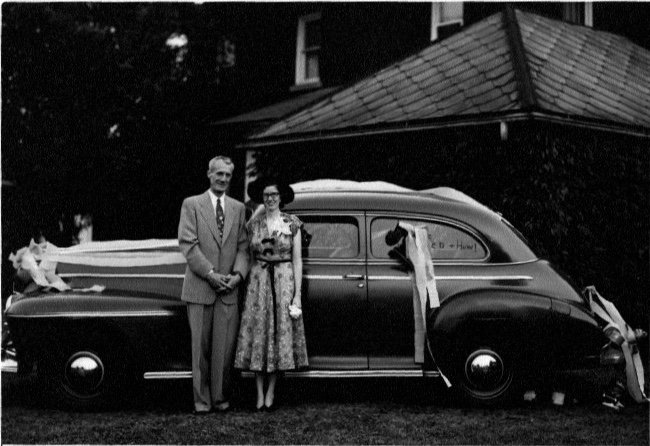Fairness & Civility
Front entrance of WRC-TV
In the early 1980s, I was a TV producer with the NBC owned and operated station in Washington, DC. I was only there a few years before a job change moved us to Philadelphia, but it was a heady time to be in DC with the advent of the Reagan administration.
I worked with consumer investigative reporter Lea Thompson and was accountable for up to two minutes of air time a day. We covered topics like food safety, product alerts, and sometimes testing of commercial product claims. One memorable product test was set up to answer the pressing question of which battery truly lasted the longest. We bought novelty eyeglasses with wipers, each powered by a major battery brand, lined them up in a row, and turned them on at the same time to record how long each battery lasted. Important information for consumers, no? Today I have no idea which battery lasted the longest, but I do still buy Duracell.
It was a very different era for TV news and among the differences was an adherence to the Fairness Doctrine in all of our reporting. The Fairness Doctrine was an FCC rule introduced in 1949 that required any entity holding a broadcast license to present controversial issues of public importance and to do so in a way that fairly reflected differing viewpoints.
Although I’m not certain how controversial an issue battery life is or was, we were careful and diligent in reaching out to the public relations officers of all those brands we tested for comment to report on their responses in the interest of fairness.
The Fairness Doctrine also encouraged WRC-TV’s radio station to host a talk program with Tom Braden and Pat Buchanan at our studios. I would frequently encounter Pat Buchanan as he was dropped at the station by his lovely wife, walking in to greet his friend Tom Braden for their radio show. Some of you probably remember Pat Buchanan as one of Nixon’s top aides and a staunch conservative while Tom Braden was a former CIA agent, author of “Eight is Enough”, and an equally staunch liberal.
Their articulate commitment to opposing viewpoints was balanced by a respectful friendship that allowed them to argue thoughtfully and retain the ability to engage on core shared values. I always learned something by listening to those two men discuss issues of public importance without vitriolic name calling. They were never mean or nasty in their comments. Civil, actually.
I miss that today. The Fairness Doctrine was eliminated in the late 1980s and along with it the idea of fairness on the nation’s airwaves. In its place are stations that preach partisan viewpoints with little balance.
Once upon a time, people were able to disagree and still engage in civil discourse, to listen carefully to differing viewpoints, and to seek to understand where those differences came from rather than merely deliver canned messaging designed to diminish The Other. I wonder whether that will ever be possible again.








